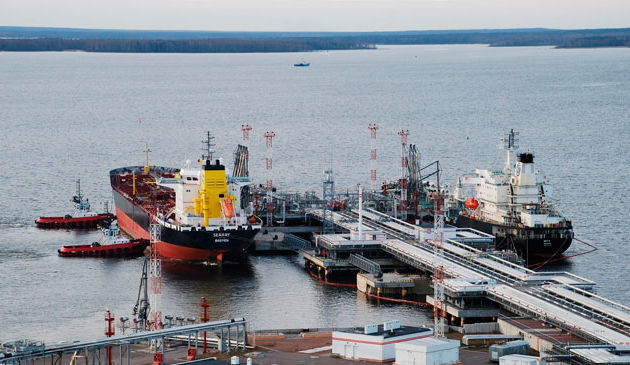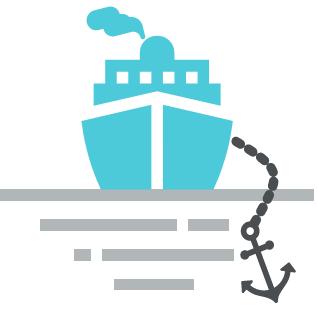Impact of Sea Level Rise on Major Global Oil Ports: A Climate Change Concern
The world’s largest oil ports could be submerged if sea levels rise by one meter, according to a study by the Swedish climate organization International Cryosphere Climate Initiative, as reported by the British newspaper The Guardian.
The report highlights that 13 ports in China, the Netherlands, the UAE, South Korea, Russia, Saudi Arabia, Singapore, and the United States are at risk. The most vulnerable are the Ras Tanura and Yanbu ports in Saudi Arabia, through which the kingdom exports 98 % of its oil.

Source: port authority
The ICCI report also mentions the Ust-Luga port in the Leningrad region, Texas ports of Houston and Galveston, the Dutch port of Rotterdam, and Fujairah and Khor Fakkan in the UAE, as well as Chinese ports Dalian, Ningbo, and Shanghai, and the South Korean port of Gwangyang.
According to the organization, a one-meter rise in sea levels appears to be an inevitable process during the 21st century. Scientists predict that this scenario could occur as early as 2070 if carbon emissions are not reduced. Experts noted that transitioning to renewable energy sources could help mitigate global warming. The ICCI warned that in a catastrophic scenario, sea levels could rise by three meters in the first half of the 2100s.
Pam Pearson, the director of ICCI, pointed out the irony that these oil tanker ports are situated at sea level below one meter and must monitor the rate of sea level rise, which is itself a consequence of the ongoing use of fossil fuels. The Guardian noted that in 2023, the 13 listed ports accounted for about 20 % of global oil exports.

